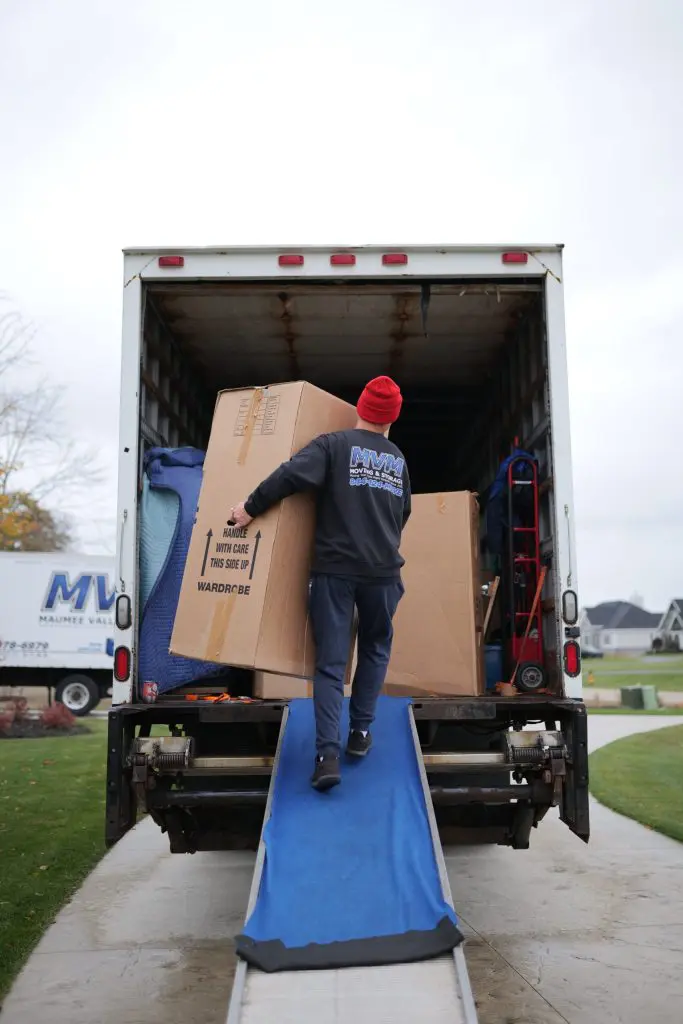Moving Checklist

Moving to a new home is not a one-day event. Although the trucks may be loaded and unloaded in the course of a day, planning for a move begins long before moving day, and you may feel overwhelmed with all the logistics. After all, there is far more involved than transferring your belongings from one place to another. If you need additional assistance in moving large or delicate items once you have moved into your new home, MVM Moving offers in-home moving services to help.
Some moves may have to take place in a matter of weeks, but often, families are able to plan the transition over at least a couple of months. Here’s a moving checklist that details the steps you should take and the timeline to follow leading up to moving day.
Two Months Before Moving
- Build a budget for moving expenses. Decide how much you will spend on a moving company, what transportation costs will be, and what you’ll spend on moving supplies.
- Create a moving binder or online folder. Keep track of quotes from movers and moving-related receipts (moving expenses are sometimes tax-deductible), and build a moving schedule you will stick to in the coming months.
- Prepare your children for their new school. Transfer their transcripts to the new school and make sure they are registered to attend.
- Hold a garage sale. Decide which belongings you would rather sell than move.
- Determine how furniture fits in the new home. Review the floor plans and measure your furniture so you know where it will fit.
- Inform your moving company of any specialty items. Moving companies may use special equipment to move items like large pieces of furniture or pianos, so let them know well ahead of the move about any unique situations.
One Month
- Collect moving boxes and label what will go in each. You can request boxes from your local grocery store, or moving companies often can supply boxes.
- Pack items you do not use frequently. It’s too early to pack essentials, but getting a head start on packing will help minimize the amount to be done in the final days leading up to the move.
- Request time off work. It can be helpful to move on a Friday and get settled over a three-day weekend.
- Transfer utilities. Cancel utilities at your current home for when you leave and have them ready for your new place when you arrive.
- Inform financial institutions of your move. Provide them with your updated address or begin the process of transferring to a new local institution.
- Contact your medical professionals about transferring records and about recommendations. Your doctors, dentist, and your pet’s veterinarian may know a practice near your new home to recommend.
- Determine if homeowners’ insurance transfers. Contact your insurance company and inform them of your move, and handle any logistics in transferring coverage.
- Notify the post office and subscriptions about the change of address. Any mail you regularly receive should be sent to your new home address when you move.
Two Weeks
- Return anything you borrowed or collect anything you lent. This could include library books, tools, or movies.
- Collect all receipts. If you have been keeping track of moving-related receipts, review your purchases to understand the full amount you have spent for tax and budgeting purposes.
- Clean out your safe deposit box. Visit your local financial institution and collect those important items before moving.
One Week
- Clean your home. You want to be respectful to the new residents, and if you are moving from an apartment, you could be charged a fee or lose your security deposit if you do not have your home cleaned.
- Defrost and clean the refrigerator. Plan how you are going to store food in the days before the move without having your full refrigerator.
- Pack suitcases. Keep enough clothes out to wear for the next week, but pack as much as you can so you are not gathering everything the day before moving.
- Check the weather for moving day. Though forecasts are subject to change a week out, it is best to have an understanding of any issues the weather may cause for moving day.
The Day Before Moving
- Finish all packing, but create a moving day bag. Try to avoid leaving any packing for moving day, and ensure you have a bag that is accessible during the move. Your moving day bag should also include valuables such as jewelry and prescriptions, so they are not misplaced during the moving process.
- Do a final clean of the home. The house should be well cleaned at this point, but do a final sweep of the house to pick up anything that has collected over the past several days.
- Confirm the weather for moving day. Do an additional check on the forecast for moving day and make any necessary adjustments to avoid problems caused by the weather.
- Review the moving schedule. Coordinate with your family about what time the movers are arriving and what needs to be ready when they do.
Checklist for Moving Day
- Check each room of the house one last time. Do a final check of all rooms, looking in closets, drawers, and anywhere else something could be forgotten.
- Leave a welcome card for the home’s new residents. Write about how excited you are for them to experience the home and welcome them to the neighborhood by listing some of your favorite places in the community.
- Lock windows and doors and turn out the lights. Do a final check to make sure everything is secured, as the house will be empty between residents.
Moving Guides
Free, no obligation estimates for moving and storage
Our moving quotes are carefully customized to your unique moving needs and ensure the highest level of accuracy, and our relocation team has over 100 years of combined moving experience.




Locations in Ohio, Indiana, and Florida